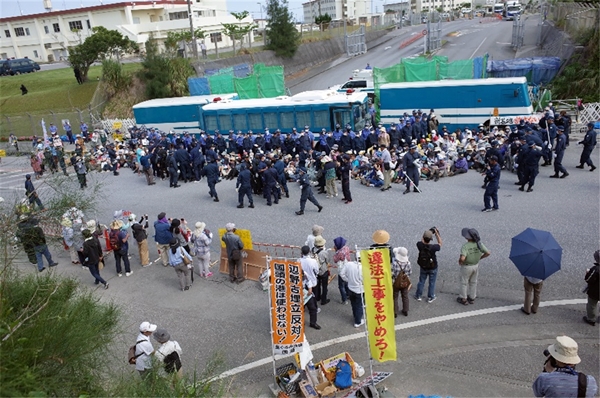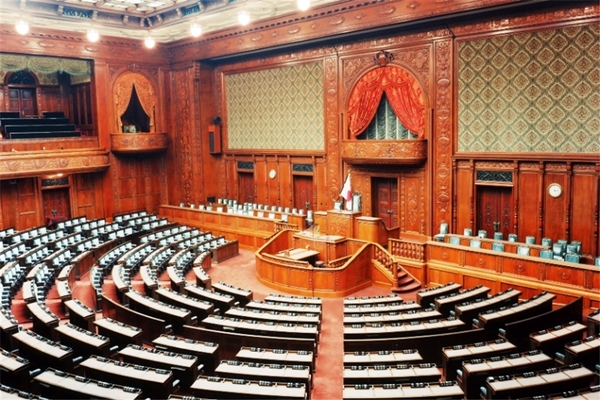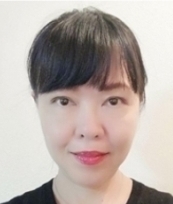[평화예술칼럼 Peace Art Column] (103) 토미야마 카즈미
10월 3일 니시무라 히로유키(西村博之)라는 일본인 인플루언서가 오키나와 헤노코에 나타났다.
헤노코에서는 1997년 이후 현지로의 미군 후텐마 비행장 이설에 반대하는 주민운동이 계속되고 있다. 2014년에는 건설 예정지와 인접한 캠프 슈워브 게이트 앞에서 항의 시위가 시작됐다. 시위자들은 바다를 매립할 토사와 자재를 운반하는 트럭 등 공사 차량의 진로를 가로막거나 길거리에 농성하다 뒹군다. 수십 대의 트럭이 줄을 선 광경은 그 자체로 위압적이지만 시위자들은 1분 1초라도 바다 파괴를 늦추려 공사장으로 이어지는 기지 게이트 앞에서 몸을 던진다. 오키나와 현 경찰이 이들을 붙잡아 강제로 떼놓아도 시위자들은 다시 거리로 돌아간다.

현재 트럭 행렬이 찾아오는 것은 평일 하루 3회이며, 시위는 그에 맞춰 진행된다. 그런데 문제의 니시무라는 시위자들이 없는 (트럭이 오지 않는) 시간대에 현장에 와서 '농성 3011일'이라고 표시한 간판을 비웃듯 "농성 항의가 아무도 없으니 0일로 하는 게 낫지 않냐"고 트위터에 올렸다. 이에 동조해 헤노코 신기지 반대 운동을 야유하는 목소리가 SNS상에 쏟아졌다.
내 생각에 니시무라는 농성(sit-in)과 오큐파이(occupy)의 구별이 안 되는 것 같다. 트럭을 세우는 게 목적이니 트럭이 나타나지 않는 시간에 거기 있을 필요는 없지만, 그로서는 24시간 투신하지도 않으면서 반기지 운동이란 웃음거리가 아닐 수 없다. 그는 이후에도 "오키나와 출신 사람들은 표준어를 잘 못해요"라고 글을 올렸다. 이 역시 오키나와인의 열등성을 내비치는 차별적 발언이다. 오키나와의 섬들은 일본어가 아닌 고유의 언어를 가지고 있다. 오키나와인이 일본어를 강제당한 것은 메이지 일본에 병합된 이후 150년이고, 니시무라(西村)가 오키나와인은 '표준(일본)어'를 말할 수 없다고 단언하는 것은 오키나와인을 아류의 일본인으로 보는 시대착오적인 제국의식 때문일 것이다.
그러나 니시무라의 술책에 더 이상 놀아나는 것은 넌센스다. 오키나와인에게 있어서 일본어가 향상되는 것보다 중요한 것이 있다. 이는 오랫동안 일본과 동화되면서 라이프스타일이 변용되는 가운데 현재 오키나와인은 대부분 일본어를 모국어로 하고 있으며, 오키나와어를 구사하는 사람의 수는 감소일로를 걸으면서도 오키나와어가 아직 완전히 구축되지 않았다는 사실이다. 모든 언어가 그렇듯이 언어는 화자 집단의 세계관과 사고 양식, 문화의 근원이다. 일본어에 침식당하면서도 오키나와어의 고유한 에센스를 계속 유지하는 것이야말로 의의가 있으니 아나운서와 같은 표준 일본어 따위는 말할 수 없어도 상관없다.

표준 일본어 하면 생각나는 사건이 있다. 1971년 10월 19일 사토 에이사쿠 총리가 소신 표명 연설을 하던 중의원 본회의장 방청석에서 폭죽 터지는 소리가 울려 퍼졌다. 곧바로 오키나와 청년동맹 소속 3명이 모든 오키나와인은 단결해 궐기하라는 전단을 뿌렸고 그 자리에서 체포돼 건조물 침입과 위력 업무방해 혐의로 기소됐다. 오키나와 청년동맹은 일본에서 생활하는 오키나와 출신 젊은이들의 조직이었다. 이들은 오키나와인의 해방을 목표로 ‘일본인에게는 오키나와의 운명을 결정할 권리는 없다’, ‘오키나와 반환협정 분쇄해야 한다’고 주장했다.
피고인이 된 3명은 1972년 2월 16일의 첫 공판에서, 오키나와어로 재판관에게 응답했다. 판사는 동요하며 "일본어로 말하세요!" 라고 목소리를 높였다. 젊은이들은 판사가 이해하지 못하는 오키나와어로도 왜 오키나와어를 사용하면 안 되는가, 오키나와는 일본이 아닌가? 라고 접었다. 3명은 각각 출신의 섬이 다르기 때문에 3종류의 오키나와어가 난무했고, 방청석의 오키나와인도 오키나와어로 야유를 보냈다. 재판장은 참다 못해 일본어란 표준어를 말하는 것이라고 했다. 오키나와어가 표준 일본어를 고집하는 권력을 휘젓기도 교란했던 순간이 일찍이 있었을까. 젊은이들의 전술은 훌륭하게 성공한 것이다.
결국 사법권력은 이 젊은이들에게 징역 8월의 유죄 판결(집행유예 3년)로 응했다. 그 중 한 명은 우리 섬 선배다. 일본에서 사업을 성공시킨 그는 오키나와로 돌아온 지금도 해방의 꿈을 포기하지 않고 있다. 그는 일본어를 능숙하게 말한다. 그래도 그 억양이나 리듬에는 섬의 향기가 확실히 감돌고 있어서 나는 그것을 유난히 선호한다.

# 토미야마 카즈미
토미야마 카즈미(豊見山和美 TOMIYAMA Kazumi) 씨는 도쿄 소재 추오대학교와 류큐대학교 대학원에서 법학을 전공했으며, 영국 런던대학교 아카이브연구 석사과정을 마쳤습니다. 이후 오키나와현립공문서관의 아키비스트로 일하면서, 오키나와 전후사를 중심으로 문화평론을 하고 있습니다.
沖縄語という「攪乱」
豊見山和美
10月3日、西村博之という日本人インフルエンサーが沖縄・辺野古に現れた。辺野古では1997年以降、当地への米軍普天間飛行場移設に反対する住民運動が続く。2014年には建設予定地に隣接するキャンプ・シュワブのゲート前で抗議デモが始まった。抗議者たちは、海を埋立てる土砂や資材を運搬するトラックなど工事車両の進路に立ちはだかり、あるいは路上に座り込み、寝転ぶ。数十台のトラックが列を成す光景はそれ自体が威圧的だが、抗議者たちは1分1秒でも海の破壊を遅らせようとして工事現場に続く基地のゲート前で体を張る。沖縄県警察が彼らをとりおさえて強制排除しても、抗議者たちは再び路上へ戻っていく。
現在、トラックの列がやってくるのは平日の1日3回で、抗議行動はそれに合わせて行われる。ところが件の西村は、抗議者たちのいない(トラックが来ない)時間帯に現場に来て、「座り込み3011日」と表示した看板を嘲るように、「座り込み抗議が誰も居なかったので、0日にした方がよくない?」とツイッターに投稿した。これに同調して辺野古新基地反対運動を揶揄する声がSNS上に溢れた。
私が思うに、西村は座り込み(sit-in)とオキュパイ(occupy)の区別がつかないらしい。トラックを停めるのが目的なのだから、トラックが現れない時間にそこにいる必要はないが、彼にすれば24時間挺身してもいないくせに反基地運動とは笑止千万ということなのだろう。彼はその後も「沖縄出身の人は標準語がうまく喋れないです」と投稿した。これもまた、沖縄人の劣等性をほのめかす差別的発言である。沖縄の島々は日本語ではない固有の言語を持つ。沖縄人が日本語を強制されたのは明治日本に併合されて以降150年のことで、西村が沖縄人は「標準(日本)語」を話せないと断言するのは、沖縄人を亜流の日本人とみる時代錯誤な帝国意識のゆえだろう。
しかし西村の機略にこれ以上付き合うのはナンセンスだ。沖縄人にとって日本語が上達するよりも重要なことがある。それは、長きにわたって日本と同化し、ライフスタイルが変容するなかで、現在の沖縄人の大半は日本語を母語とし、話者の数は減少の一途を辿りながらも、沖縄語がまだ完全には駆逐されていないという事実だ。どの言語もそうであるように、言語はその話者集団の世界観や思考様式、文化の源である。日本語に侵食されながらも、沖縄語の固有のエッセンスを保ち続けることにこそ意義があるのだから、アナウンサーのような標準日本語など話せなくてもいっこうにかまわない。
標準日本語と言えば思い出す事件がある。1971年10月19日、佐藤栄作首相が所信表明演説を行っていた衆議院本会議場の傍聴席から、爆竹のはじける音が鳴り響いた。すかさず沖縄青年同盟に所属する3人が「全ての沖縄人は団結して決起せよ」と呼びかけるビラをまき、その場で逮捕され、建造物侵入と威力業務妨害の罪で起訴された。沖縄青年同盟は日本で生活する沖縄出身の若者たちの組織だった。彼らは沖縄人の解放を目指し、「日本人に沖縄の運命を決定する権利はない」「「沖縄返還協定粉砕すべし」と主張した。
被告人となった3人は1972年2月16日の初公判において、沖縄語で裁判官に応答した。裁判官は動揺し、「日本語で話しなさい!」と声を荒げた。若者たちは、裁判官が理解できない沖縄語でなおも、なぜ沖縄語を使ってはいけないのか、沖縄は日本じゃないのか?と畳みかけた。3人はそれぞれ出身の島が違うため、3種類の沖縄語が飛び交い、傍聴席の沖縄人も沖縄語で野次を飛ばした。裁判長はたまりかねて、日本語とは標準語のことだと言った。沖縄語が、標準日本語に固執する権力をかくも攪乱した瞬間がかつてあっただろうか。若者たちの戦術は見事に成功したのだ。
結局、司法権力はこの若者たちに懲役8月の有罪判決(執行猶予3年)を以て応じた。その一人は私の島の先輩だ。日本で事業を成功させた彼は、沖縄に戻った今も解放への夢を諦めていない。彼は日本語を上手に話す。それでも、その抑揚やリズムには島の香りが確かに漂っていて、私はそれをこよなく好ましいと思う。
写真1 辺野古・キャンプ・シュワブ前。抗議者たちを排除する警察。2018年4月
写真2 衆議院議場(衆議院ホームページより)。沖縄の若者たちは傍聴席で爆竹に火を点けた。
Okinawan Languages as Self Liberation
TOMIYAMA Kazumi
On 3 October, 2022, a Japanese influencer NISHIMURA Hiroyuki appeared in Henoko, Okinawa. In Henoko, residents have been opposing the relocation of the US Marine Corps Air Station Futenma to this site since 1997, and in 2014 protest demonstrations began in front of the gate of Camp Schwab, which is adjacent to the proposed construction site. Protesters stand in the path of trucks and other construction vehicles carrying earth, sand and other materials to reclaim the sea, or sit or lie down on the road. The sight of dozens of trucks lined up in a row is intimidating in itself, but protesters brace themselves in front of the base gate leading to the construction site in an attempt to delay the destruction of the sea, even by a minute or a second. Even when the Okinawan police subdue them and forcibly remove them, the protesters return to the road.
Currently, the line of trucks arrives three times a day on weekdays, and the protests are timed accordingly. However, the Nishimura in question came to the site at a time when there were no protesters (no trucks coming) and mocked a sign displaying 'Sit-in 3011 days', saying, "Since there was no one at the sit-in protest, shouldn't we make it 0 days?" he posted on Twitter. In sympathy with this, SNS were flooded with voices making fun of the campaign against the new Henoko base.
My guess is that Nishimura can't distinguish between Sit-in and Occupy. The aim is to stop the trucks, so there is no need to be there when they don't show up, but to him it is laughable to talk about an anti-base movement when the protesters are not even there 24 hours a day. He then went on to post that "Okinawans can't speak standard Japanese well". This is another discriminatory statement implying the inferiority of Okinawans. The Okinawan islands have their own language, which is not Japanese. Okinawans have only been forced to speak Japanese since they were annexed by Meiji Japan 150 years ago, and Nishimura's assertion that Okinawans cannot speak "standard (Japanese) language" is probably due to an anachronistic imperialistic view of Okinawans as sub-class Japanese.
But it is nonsense to go any further with Nishimura's machinations. There is something more important for Okinawans than improving their Japanese language skills. It is the fact that, after a long period of Japanization and lifestyle transformation, the majority of Okinawans today speak Japanese as their mother tongue, and while the number of speakers continues to decline, the Okinawan language has not yet been completely eradicated. As with any language, language is the source of a speaker group's worldview, way of thinking and culture. It is significant to maintain the unique essence of the Okinawan language despite the encroachment of the Japanese language, so it does not matter if they do not speak standard Japanese like the announcers.
Speaking of standard Japanese, one incident comes to my mind: In Tokyo, on 19 October 1971, the sound of firecrackers popping was heard from the sidelines of the plenary session of the House of Representatives, where Prime Minister SATO Eisaku was delivering his policy speech. Immediately, three members of the Okinawa Youth League spread leaflets calling for 'all Okinawans to unite and resolve' and were arrested on the spot and charged with trespass to buildings and obstruction of business. The Okinawa Youth League was an organisation of young people from Okinawa living in Japan. They aimed to liberate the Okinawans and insisted that "the Japanese do not have the right to decide the fate of Okinawa" and that "the Okinawa reversion agreement must be smashed".
At their first trial on 16 February 1972, the three accused responded to the judge in Okinawan language. The judge became upset and shouted, "Speak in Japanese!" he shouted. The youths continued in Okinawan, which the judge did not understand, and asked why they could not use Okinawan, is Okinawa a part of Japan, isn’t it? As the three were from different islands, three different Okinawan languages were spoken, and Okinawans in the audience also made jokes in Okinawan. The presiding judge couldn't help but say that Japanese means standard Japanese. Was there ever a moment when the Okinawan language so disturbed the power that clung to standard Japanese? The youths' tactic worked brilliantly.
In the end, the judicial power responded with an eight-month prison sentence (suspended for three years) for these youths. One of them is from the same island as me. He has had a successful business career in Japan and has not given up on his dream of Okinawan liberation now that he has returned to Okinawa. He speaks Japanese very well. Even so, there is a definite island flavour to his inflections and rhythms, which I find endearing.
Photo 1: In front of the gate of Camp Schwab in Henoko. Police removing protesters.
Photo 2: Plenary session of the House of Representatives, Japan (from the official website). Young Okinawans lit firecrackers on the sidelines.

